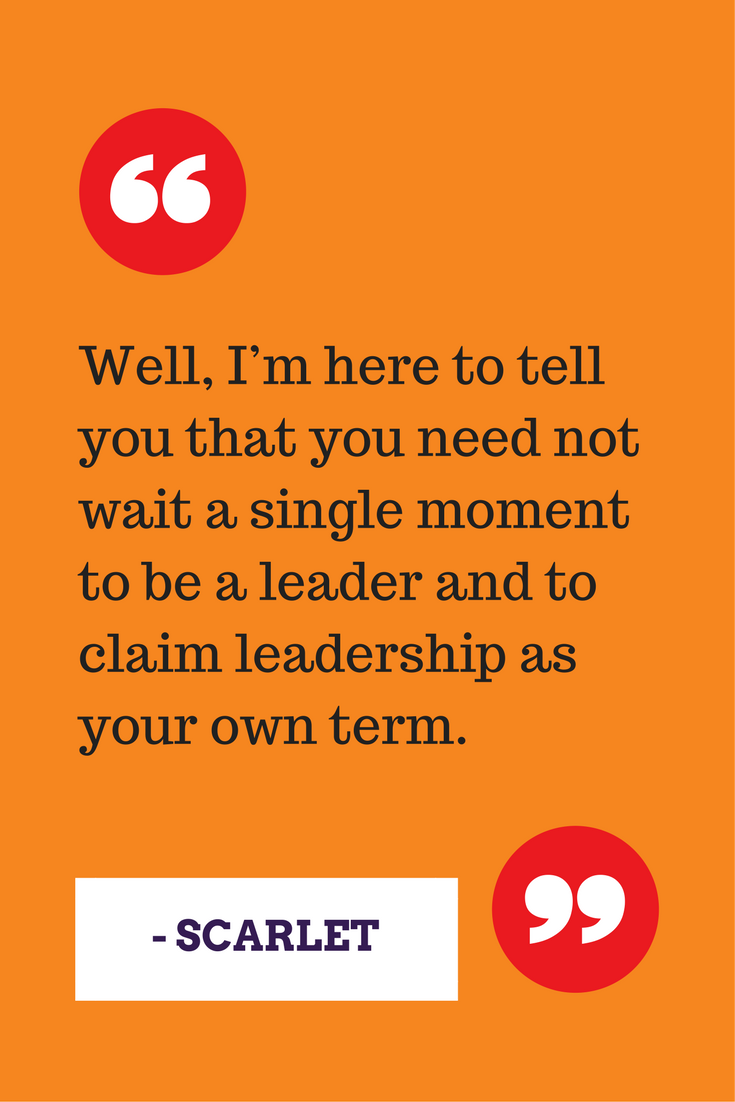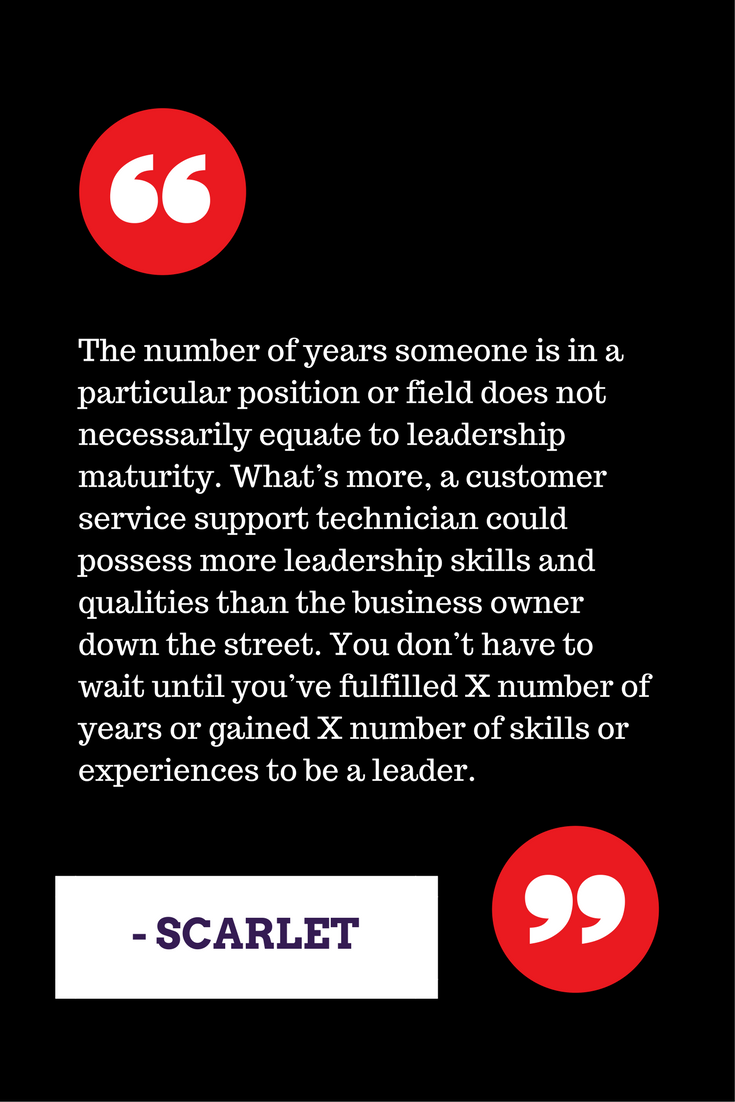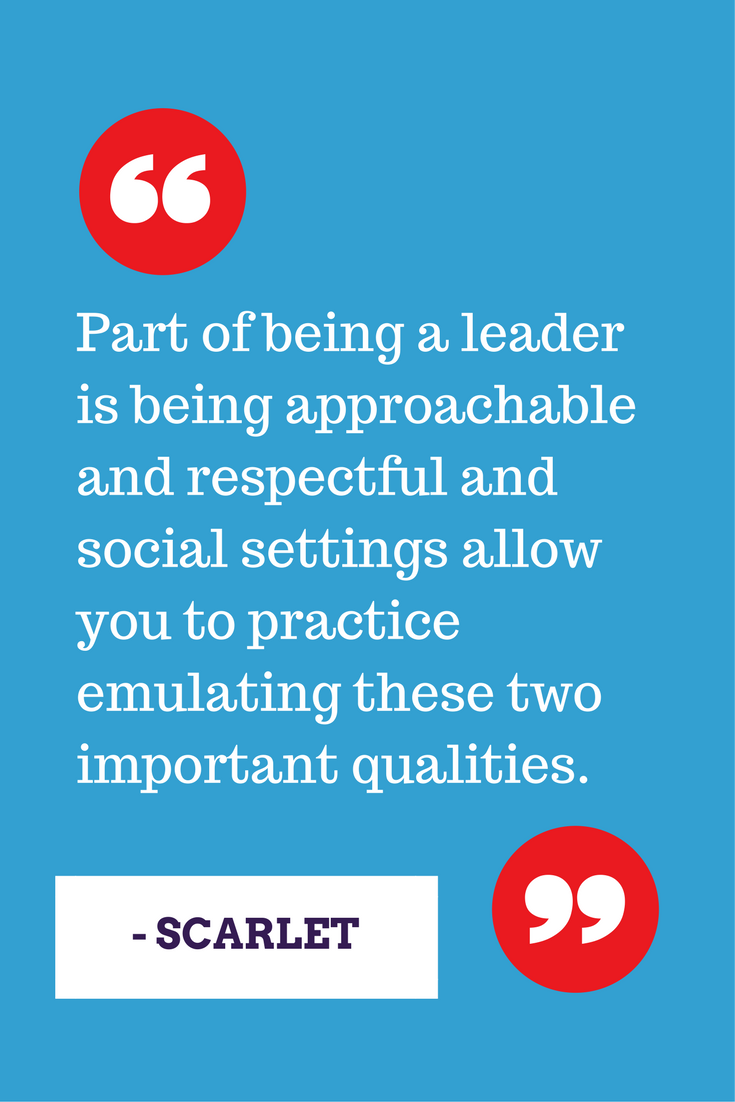When you think of leadership, what comes to mind? Maybe it’s a particular professional position such as the coveted C-suite titles of CEO, COO, CFO, and CIO. Maybe you think of some of the big names in business like Bill Gates, Mary Barra, Mark Zuckerberg, Jeff Bezos, Indra Nooyi, or Sheryl Sandberg. Or perhaps you imagine a local entrepreneur or philanthropist you deeply admire.
When I started out in my career these were the types of examples I associated with the term “leadership.” I later learned that this type of thinking is extremely limiting because it thrusts the shiny concept of leadership upon those who reach high levels of professional responsibility, obtain a certain level of wealth, or find fame while leaving the rest of us to trudge along in our “lesser” jobs, wishing and hoping we can someday “be a leader” like those up above.

Well, I’m here to tell you that you need not wait a single moment to be a leader and to claim leadership as your own term. We often wait for people (boss, colleague, family member, friend, mentor, professor, etc.) to give us permission to lead OR we wait for that next promotion, that next job, that next whatever to flex our leadership muscles.
But, guess what? You already have what you need to lead. All you need to do is make the decision to embrace the leader in you. Here’s how you can start:
Use What You’ve Got
Look about you. Dust off those self-help, leadership, business, and/or psychology books on your shelf and consider revisiting them to gather helpful leadership tips that you can try out. Take a glance around your work desk and see how you can apply a new idea or method to an existing project. Look to your left and right at your colleagues and figure out a way you can assist them in their current work.
There are countless opportunities before you where you can strengthen and refine your leadership skills. Spot them and take advantage of them.

Look inward. Inventory your skills, experience, and passions. You might be a veteran marketing manager or a fresh-out-of-school bank associate, but no matter where you are in your career you have skills, experience, and passions that you can call upon to assist you in your leadership development. The number of years someone is in a particular position or field does not necessarily equate to leadership maturity. What’s more, a customer service support technician could possess more leadership skills and qualities than the business owner down the street. You don’t have to wait until you’ve fulfilled X number of years or gained X number of skills or experiences to be a leader.
You’ve got some leadership DNA in you already—figure out what makes you unique and use it.
Look to mistakes. Culturally, we’ve been conditioned to keep mistakes at bay with a ten-foot pole. They happen—we know this rationally—but we may not like to discuss them or acknowledge them. Yet, we all have a little (or big) box of mistakes and instead of hiding it under the rug, let’s pull it out and use the mistakes to further develop our leadership skills. Think of mistakes as “free” leadership fuel. Make them, learn from them, and they’ll keep you going strong. (I talk more about leadership and mistakes in my new book, Leader by Mistake. Find out more here and join the #leaderbymistake community.)
Harness Your Strengths
We all have areas in which we excel and areas in which our weaknesses pop up, whether we want them to or not. Instead of dwelling on your weaknesses, try focusing on your strengths instead. It takes much less time to make our strengths shine brighter than it does to improve upon our weaknesses. The time we spend trying to be more like Pam the Purposeful Planner or Rich the Revered Researcher, the less time we are taking to champion our strengths and apply them. Try the exercise from above and look inward to identify your strengths (skills, passions, characteristics, etc.), then embrace them for the glorious gifts that they are and lead with your strong foot forward.
Find Opportunity in Social Settings
We often talk about leadership in professional settings, but we can find it in social settings as well. Thes e occasions provide excellent avenues to develop and refine your leadership skills in a less formal and less stressful environment. For example, part of being a leader is being approachable and respectful and social settings allow you to practice emulating these two important qualities. Have you ever been to a social function with a colleague who gets just a little too loose with the alcohol? Such an incident can be comical in moderation, but it can also lead to awkwardness or worse. Instead of chugging down the free booze, you can choose to put your leadership game face on and drink just enough to enjoy the libations while also remaining professional, approachable, and respectful of others.
e occasions provide excellent avenues to develop and refine your leadership skills in a less formal and less stressful environment. For example, part of being a leader is being approachable and respectful and social settings allow you to practice emulating these two important qualities. Have you ever been to a social function with a colleague who gets just a little too loose with the alcohol? Such an incident can be comical in moderation, but it can also lead to awkwardness or worse. Instead of chugging down the free booze, you can choose to put your leadership game face on and drink just enough to enjoy the libations while also remaining professional, approachable, and respectful of others.
So next time you’re out and about with friends, family, or colleagues, seek out the opportunity to flex your leadership muscles. You’ll impress those around you, and even yourself.
Until next time,
– Scarlet

